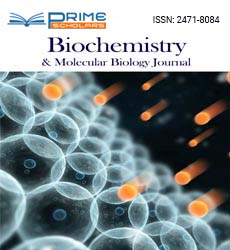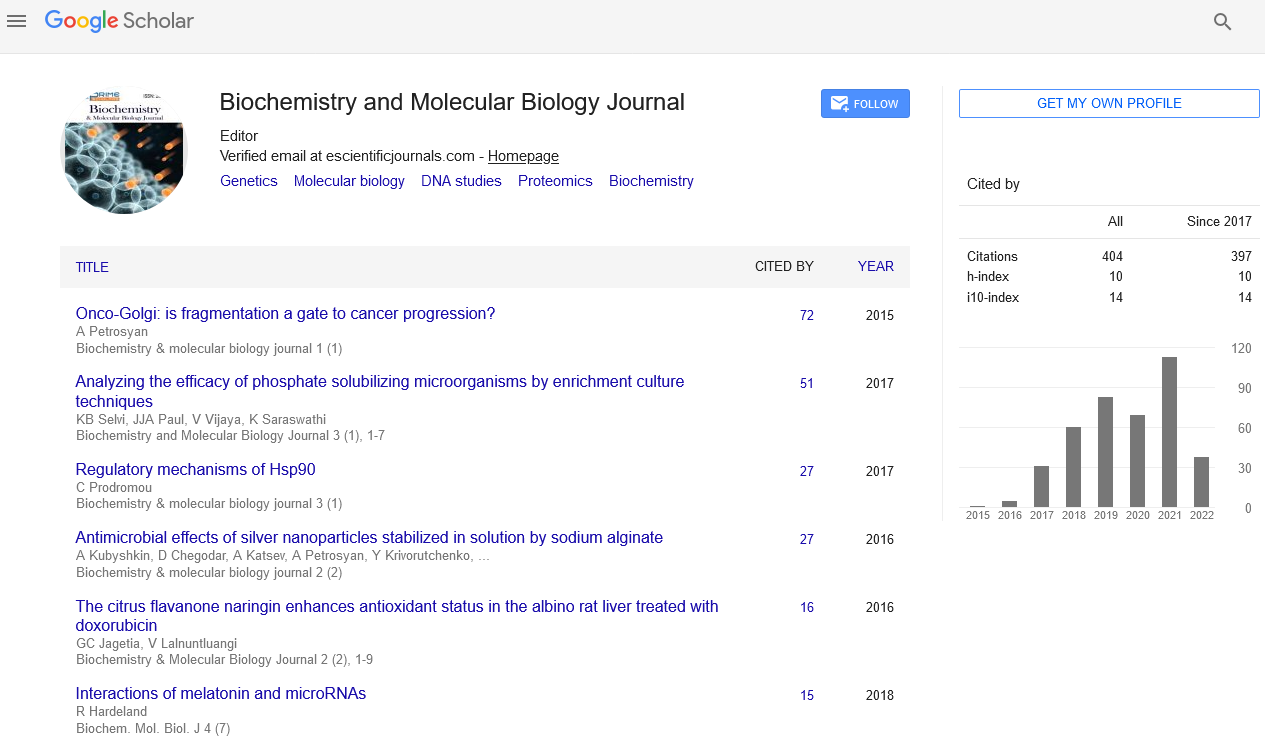Commentary Article - (2023) Volume 9, Issue 4
Exploring the Fascinating World of Microbiological Molecules
Steen Speisky*
Department of Biochemistry, University of Chile, Chile
*Correspondence:
Steen Speisky,
Department of Biochemistry, University of Chile,
Chile,
Email:
Received: 01-Aug-2023, Manuscript No. IPBMBJ-23-17668;
Editor assigned: 03-Aug-2023, Pre QC No. IPBMBJ-23-17668 (PQ);
Reviewed: 17-Aug-2023, QC No. IPBMBJ-23-17668;
Revised: 22-Aug-2023, Manuscript No. IPBMBJ-23-17668 (R);
Published:
29-Aug-2023, DOI: 10.36648/2471-8084-9.04.40
Description
Microbiology, the study of microorganisms, has unveiled a hidden
universe of tiny life forms that play a pivotal role in our world.
Within this microscopic realm, a diverse array of molecules orchestrates
the intricate dance of life. In this article, we will delve
into the captivating world of microbiological molecules, exploring
their importance, diversity, and the profound impact they have
on our planet. Microorganisms, including bacteria, viruses, fungi,
archaea, and protists, are the driving force behind many natural
processes. At the heart of their functionality are the various molecules
they produce and utilize. Here are some key microbiological
molecules:
The genetic material of all living organisms, including microorganisms,
is composed of nucleic acids, DNA (Deoxyribonucleic Acid)
and RNA (Ribonucleic Acid). These molecules encode the instructions
for growth, reproduction, and functioning. Microorganisms
produce a vast array of enzymes, which are biological catalysts that
facilitate chemical reactions. Enzymes are essential for processes
like digestion, respiration, and DNA replication. Certain microorganisms
produce antibiotics, such as penicillin and streptomycin,
to defend themselves against competitors. These molecules have
revolutionized medicine by serving as potent tools to combat bacterial
infections. Many pathogenic microorganisms release toxins,
which can cause diseases in humans and other organisms. Understanding
these toxins has been crucial in developing vaccines and
treatments. Microorganisms are prolific producers of secondary
metabolites, including pigments, antibiotics, and toxins. These
compounds often have important ecological roles and can be
harnessed for various applications. Microbiological molecules are
central players in the functioning of ecosystems.
Moreover, microbes are essential in breaking down organic matter
and recycling nutrients, making them critical in decomposition
processes. The breakdown of dead plant and animal material is
facilitated by enzymes produced by fungi and bacteria, ultimately
returning essential nutrients to the soil. Microorganisms also influence
climate by producing greenhouse gases such as carbon dioxide
and methane. The study of microbiological molecules has had
a profound impact on biotechnology. Microorganisms are used
in a variety of applications, including the production of biofuels,
bioremediation of polluted environments, and the synthesis of
valuable compounds like insulin and antibiotics. One remarkable
example is the production of recombinant DNA. Scientists have
harnessed the molecular machinery of bacteria to clone and express
genes from various organisms, allowing for the mass production
of therapeutic proteins, hormones, and vaccines. The human
microbiome, consisting of trillions of microorganisms residing in
and on our bodies, is a hotbed of microbiological activity. These
microbes produce a plethora of molecules that play crucial roles
in human health. For instance, gut bacteria produce essential vitamins
and aid in digestion, while vaginal bacteria help maintain
a healthy acidic environment that prevents infections. Microbiological
molecules are the invisible architects of life on Earth. They
influence the environment, impact human health, and fuel the engines
of biotechnology. As we continue to unravel the mysteries
of this hidden world, we gain new insights into the complex web
of life and the myriad ways in which microorganisms shape our
world. The study of microbiological molecules not only deepens
our understanding of biology but also offers boundless opportunities
for innovation and discovery in fields ranging from medicine to
environmental science.
Acknowledgement
None.
Conflict Of Interest
The author’s declared that they have no conflict of interest.
Citation: Speisky S (2023) Exploring the Fascinating World of Microbiological Molecules. Biochem Mol Biol J. 9:40.
Copyright: © 2023 Speisky S. This is an open-access article distributed under the terms of the Creative Commons Attribution License, which permits unrestricted use, distribution, and reproduction in any medium, provided the original author and source are credited.

